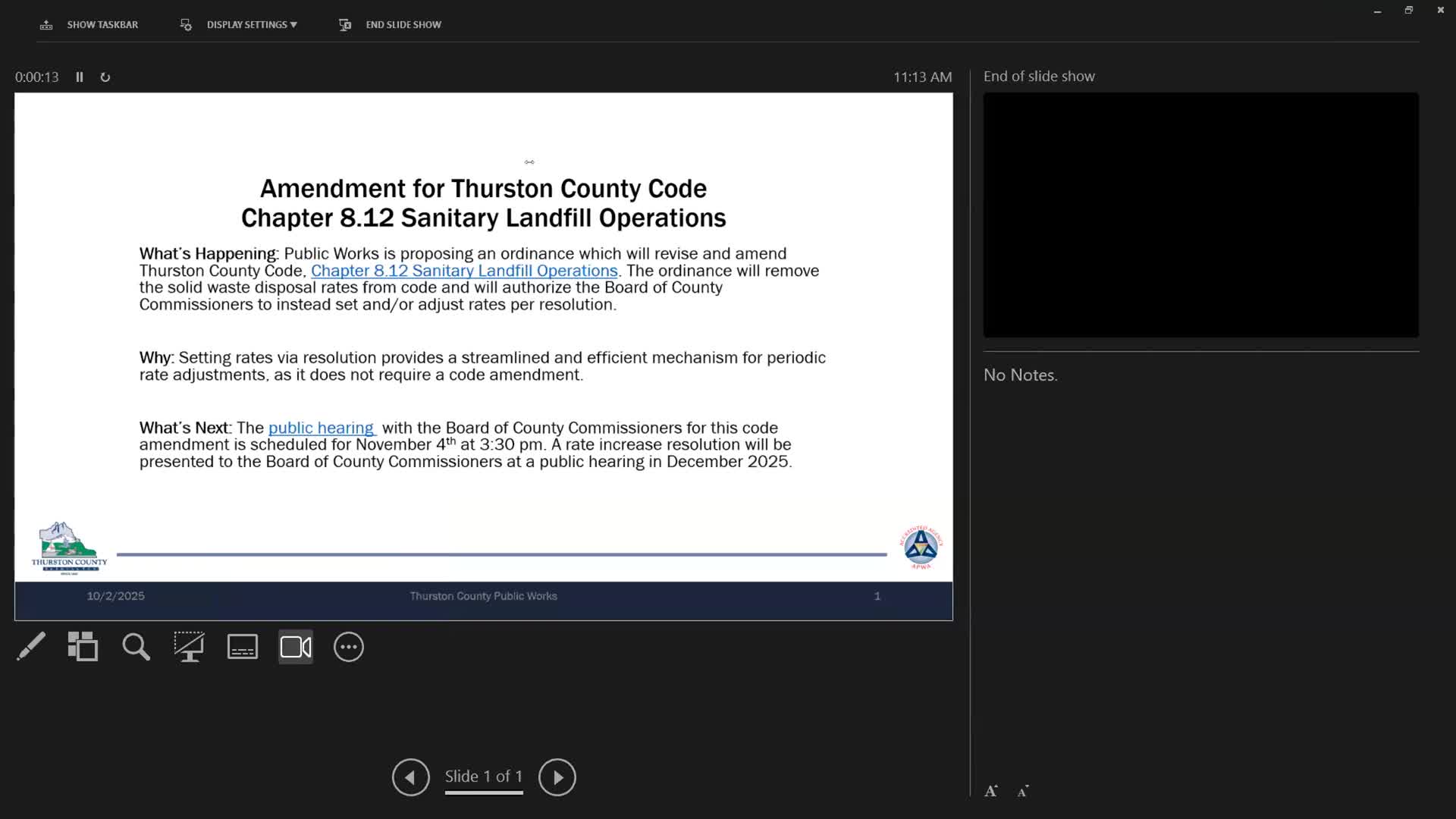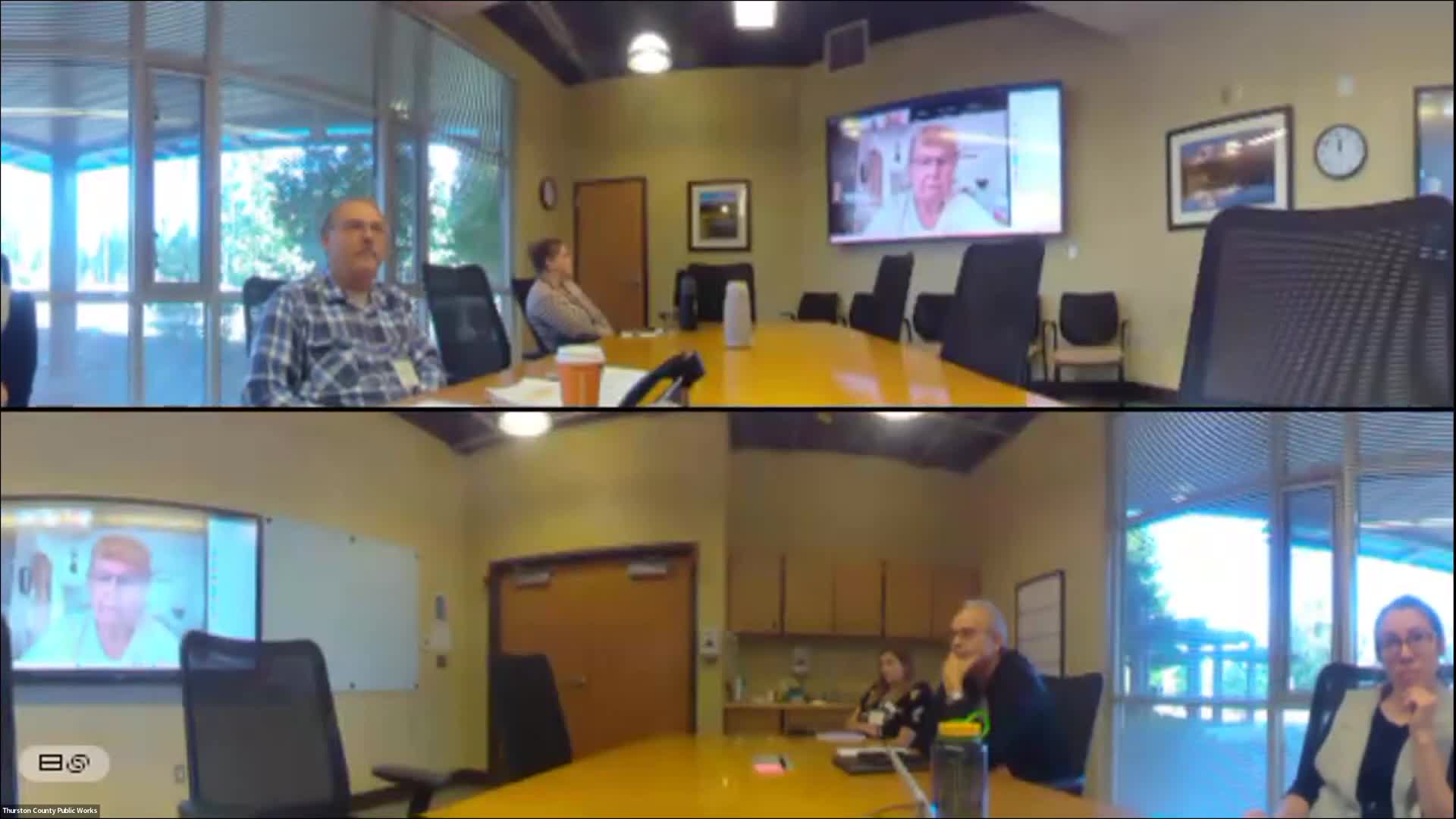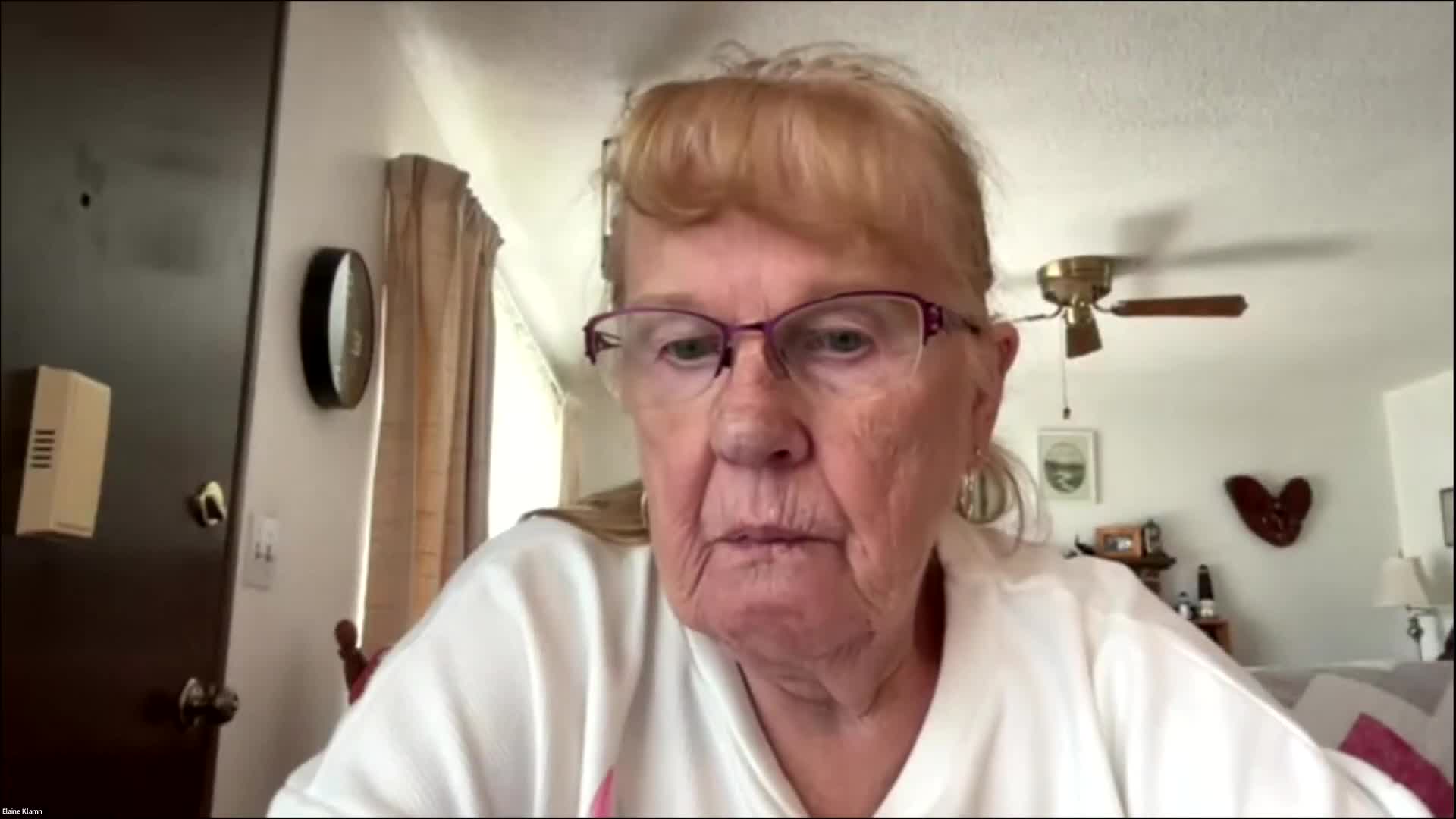Article not found
This article is no longer available. But don't worry—we've gathered other articles that discuss the same topic.

Thurston County advisory committee backs ordinance to remove solid-waste rates from code and adopt future rate-setting by resolution

Public commenter raises state recycling reform (EPR) question; Ecology presentation likely in December

County schedules Silver Springs compost tour and warns of temporary compactor outage for October installations

